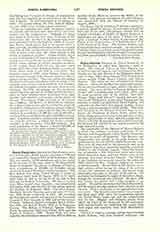

Nueva Pamplona, Diocese of (NEO-PAMPILONEN-SIS), in Colombia, South America, founded in 1549 and a see erected by Gregory XVI on September 25, 1835. The city contains 15,000 inhabitants and is the capital of the province of the same name in the Department Norte de Satander; the diocese is suffragan of Bogota, with a population of 325,000, all Catholics except about one hundred dissenters, mostly foreigners. The first bishop, Jose Jorge Torres Estans, a native of Cartagena, ruled from August 30, 1837, to April 17, 1853, when he died at the age of 81, an exile in San Antonio del Fachira, Venezuela. His successor, Jose Luis Nino, named vicar Apostolic, was consecrated in October, 1856, and also died an exile in San Antonio del Fachira, February 12, 1864. The third bishop, Bonifacio Antonio Toscano, governed from October 13, 1865, to his retirement in 1873. He convoked the first diocesan synod, and assisted at the Provincial Council of New Granada in 1868 and at the Vatican Council. Indalecio Barreto succeeded him December 3, 1874, and died March 19, 1875, at La Vega near Cucuta. The Bishop of Panama, Ignacio Antonio Parra, his successor, ruled from June 8, 1876, until his death, February 21, 1908. Bishop Parra had been exiled by the Liberal government from 1877 to 1878 on account of his efforts to preserve the liberty of the Church. The present incumbent, Evaristo Blanco, was transferred from the Diocese of Socorro, August 15, 1909.
The diocese has 52 parishes, 75 priests, a seminary, a normal school for women, 10 secondary schools for boys and 13 for girls, 180 primary schools with an average attendance of 10,500, 12 charity hospitals, 4 orphanages for girls, 3 for boys, 2 homes for the aged, 1 convent of Poor Clares, 9 convents of the Sisters of the Presentation, 4 of Bethlehemites, 3 of Little Sisters of the Poor. The Jesuits, Eudists, and Christian Brothers maintain schools. At present the Catholic element is actively promoting good journalism and workingmen’s societies, in order to counteract socialism and establish a Christian ideal of society.
ANTONIO JOSE URIBE

